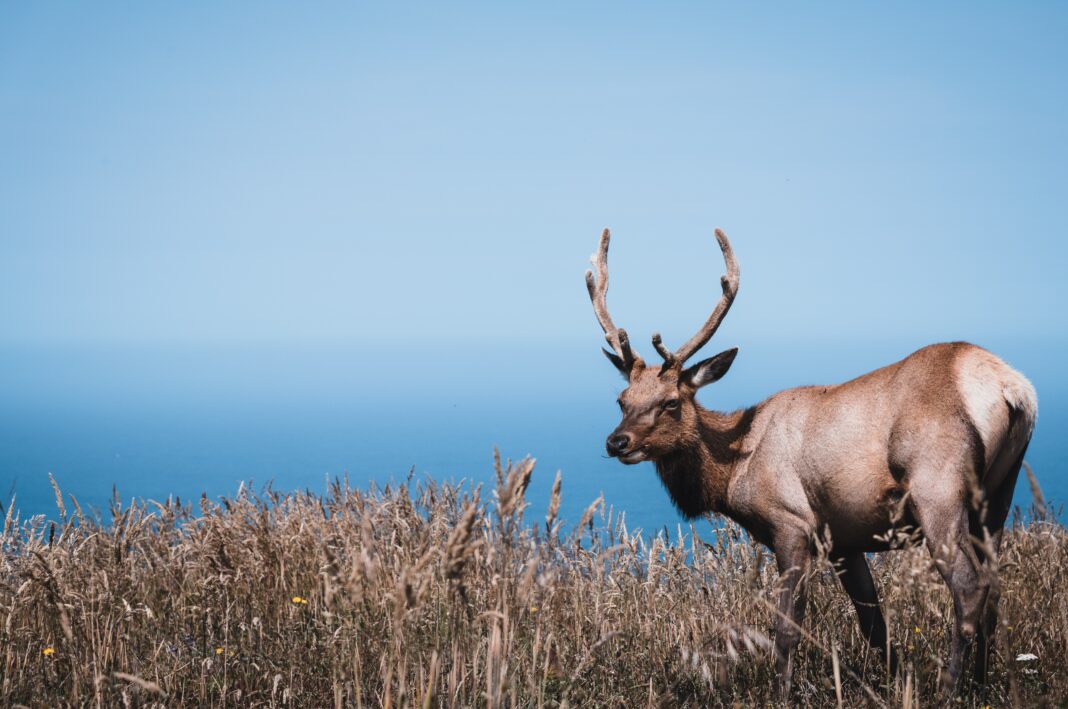Right now, the National Park Service is rewriting its General Management Plan for Point Reyes National Seashore, and the agency must decide whether to sunset the expired livestock grazing leases across tens of thousands of publicly-owned acres, or to continue authorizing unsustainable overgrazing, tillage agriculture and even the killing of native tule elk by extending leases that were never intended to continue on indefinitely.
It shouldn’t be a difficult choice for the National Park Service, but the livestock industry has some surprising supporters. Rep. Jared Huffman, a former National Resources Defense Council attorney and Green New Deal signatory, has staked out an anti-environmental position on what is arguably the most important environmental issue inside his own congressional district, and is in fact leading the charge in advocating for continuing the ongoing environmental destruction on Point Reyes.
The ranchers who rent National Park Service lands are permitted to graze them down to bare dirt. As a result, the cattle pastures are made up uniformly of European annual grasses and foreign thistles. Livestock grazing has completely destroyed the native coastal prairie on Point Reyes and turned it into a vast weed patch, destroying native shrubs and bunchgrasses that otherwise would have beneficially sequestered soil carbon underground. On top of the direct grazing impacts, almost 1,000 acres of Point Reyes are devoted to producing “silage crops”—more non-native weeds, which infiltrate surrounding lands—which are harvested in spring using combine harvesters, mowing down ground-nesting birds and deer fawns in a grisly spectacle attended by flocks of carrion birds. In addition, the dairies produce cow manure by the ton, which gets spread out on the hilltops, runs into the stream courses and creates some of California’s most polluted waters. These streams run to beaches and estuaries frequented by beachgoers, exposing them to potentially fatal fecal coliform contamination and other animal-borne diseases.
Then, consider that most of the tule elk, the rarest subspecies of elk in the world, are trapped by a tall fence on a small peninsula of the National Seashore for the sake of protecting forage resources for cattle. Without adequate water and forage, tule elk die by the hundreds during droughts—which are becoming deeper and more frequent—unable to escape to find food and water through natural dispersal. Outside the fence, small elk herds are harassed by ranchers and even killed by the Park Service for wandering onto lands leased by cattle. And then there are Endangered Species Act–listed plants, birds, amphibians and salmon runs on the National Seashore, and none of them flourish in these degraded habitats.
It’s that bad, and paradoxically, Huffman is fighting hard to keep it that way.
Huffman isn’t listening to his constituents. Not even when 91% of those who commented on the Park’s proposed plan wanted to end industrial agriculture on the Seashore. Not when locals showed up at his town hall meetings demanding protections for native tule elk. And not when his constituents picketed his district office and staged massive protests outside the elk fence during a new die-off that even now is killing more than 150 elk. It’s a strange position for an elected official to take, but Californians seem cursed to live in interesting times.
Huffman has some strange bedfellows in his quest to keep ranching the Seashore. Former President Trump made it a personal priority to extend cattle operations on Point Reyes. Trump invited Kevin Lunny, the ringleader of the Point Reyes ranching lobby, to be a featured speaker at a White House bill-signing ceremony. His administration then proposed a management plan which would not only extend commercial ranching and dairying on the park lands, but expand livestock use and further harass and kill tule elk for the benefit of livestock operations.
When Huffman authored legislation to force the National Park Service to extend industrial-scale dairy and beef operations on Point Reyes and authorize the Park Service to kill tule elk at the behest of tenant ranchers, he turned to Utah Rep. Rob Bishop to co-sponsor the legislation. Bishop was Public Lands Enemy #1 during his tenure in Congress. He tried to repeal the Endangered Species Act. He supported transferring federal public lands to the states, and sought to amend the Antiquities Act to strip the president of the authority to designate National Monuments. Bishop’s lifetime League of Conservation Voters score is 3%. Bishop’s endorsement of Huffman’s bill should be a red flag that it’s a big problem, but Huffman seems proud to have Bishop on board.
The League of Conservation Voters scores Huffman’s lifetime voting record at 98% pro-conservation. But while Huffman’s voting record has been reliably good on national conservation issues from climate change to endangered species protection to wilderness designations, his currently abysmal, anti-environmental record on Point Reyes will haunt him in his home district. We hope he comes around, and starts listening to the 3 million National Seashore visitors who aren’t coming for the unsavory sights and sounds of working dairies and ranches. They’re coming for the public recreation, benefit and inspiration for which, by law, Point Reyes is supposed to be managed.
Point Reyes National Seashore—and its iconic tule elk—are too special to sacrifice for politics.
Erik Molvar is Executive Director, and Greta Anderson is Deputy Director, of Western Watersheds Project, a conservation nonprofit working to protect and restore wildlife and watersheds throughout the American West.











